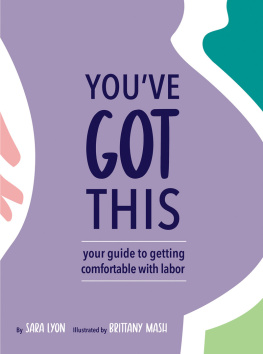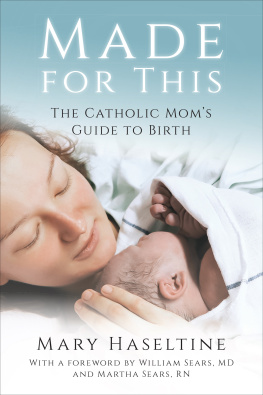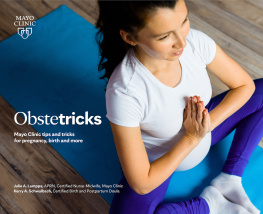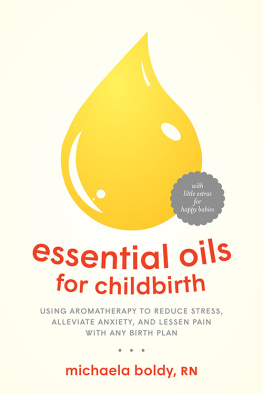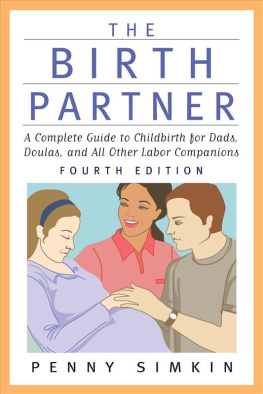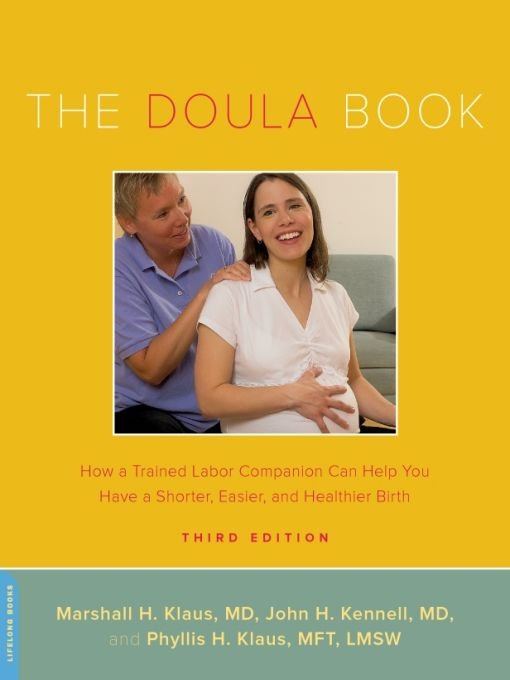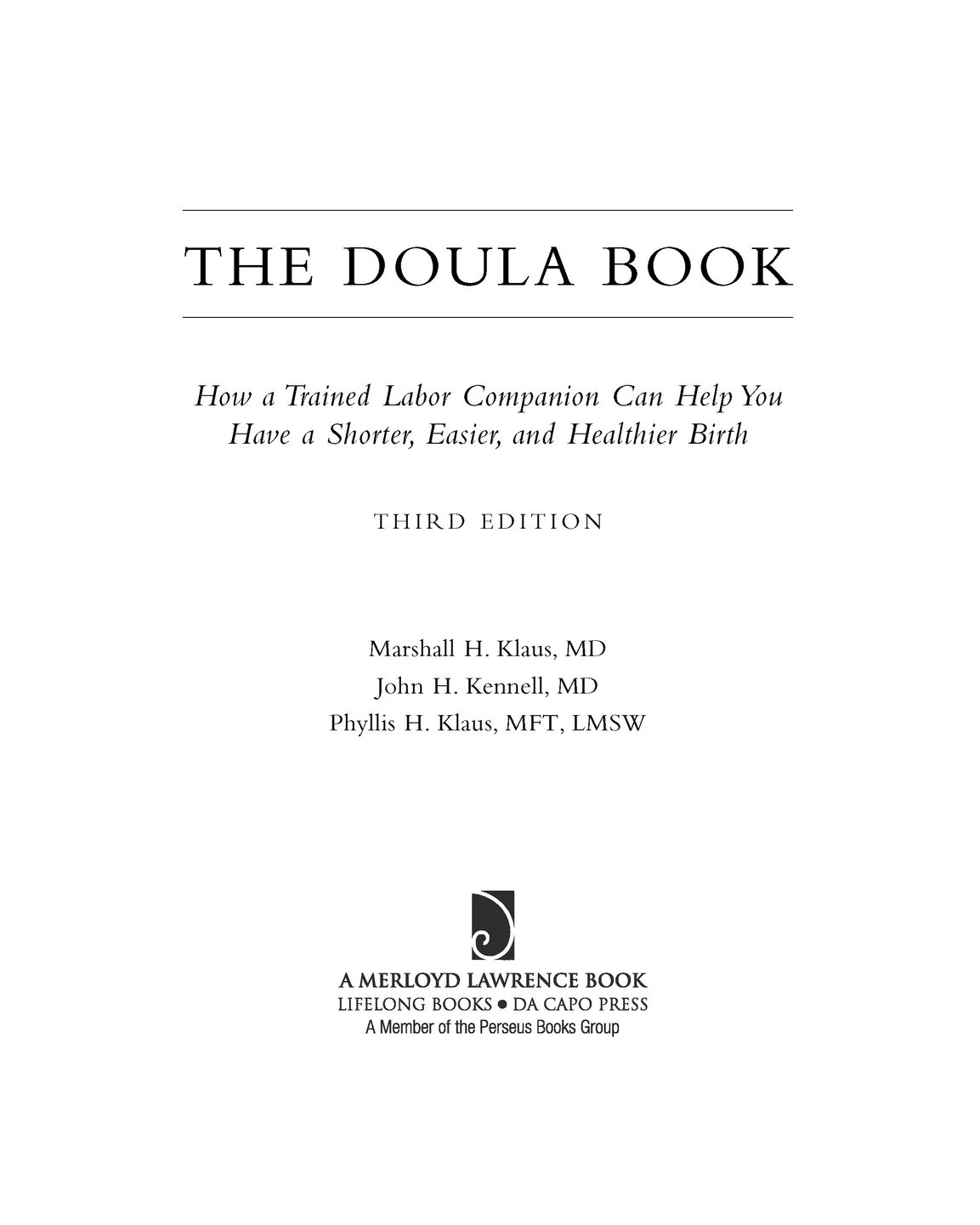Table of Contents
ALSO BY THESE AUTHORS
Bonding: Building the Foundations of Secure Attachment and Independence
ALSO BY MARSHALL AND PHYLLIS KLAUS
Your Amazing Newborn
We dedicate this book to all the sensitive and caring women who have provided continuous support during labor for the mothers in our studies. They have helped us in immeasurable ways to evaluate, describe, and begin to understand the power of their presence. We also dedicate this book to all the doulas in the future who will enable mothers and their partners to have a less complicated and more rewarding birth with long-term benefits.
Doula is a Greek word whose definition has come to mean a woman who helps other women. The word has further evolved to mean a woman experienced in childbirth who provides continuous physical, emotional, and informational support to the mother before, during, and after childbirth.
ACKNOWLEDGMENTS FOR THIRD EDITION
Our understanding of the needs of mothers and their partners during labor developed during our systematic studies and clinical experience over the past thirty-six years. Insights also came from discussions with doulas and close colleagues Steven Robertson, Susan McGrath, Roberto Sosa, Manuel de Carvallho, Clark Hinkley, Penny Simkin, Nadia Stein, Roberta OBell, Susan Landry, Kenneth Moise, Majorie Greenfield, Kathy Scott, Charles Mahan, Michael Klein, Debra Pascali-Bonaro, and the late Moisies Paciornik. We also appreciate the thoughtful and significant work of Carol Sakala and Maureen Corry.We thank Della Campbell and Michelle Falk for their important work, which is included in Chapter 9. The excellent book and discussions with Sarah Buckley inspired us.
We also thank the medical students, and especially Wendy Freed, who more than three decades ago sparked our interest in exploring the needs of women during labor through observations she made when she stayed with ten mothers during labor as part of another study. Apparently benefiting from her supportive presence, these mothers all had a remarkably short labor and a complication-free birth. These observations were a critical stimulus to our exploration of the effects of a doula.
We appreciate the major conceptual additions to this book by Kerstin Uvns-Moberg and the Swedish midwives, Ann-Marie Widstrm, Anna-Berit Ransj-Arvidson, Eva Nissen, Kyllike Christensson; and Wikbe Jonas, as well as Beverley Chalmers, G. Justus Hofmeyr, Wendy-Lynne Wolman, and their Johannesburg research colleagues; and Christina Smillie with her new information about the latch-on in breastfeeding.
The perceptive comments of Laura and David Abada, Susan and Bob Sholtes, Devi and David Borton, Kristin Brooks and Glenn Meyer, Humm Berreyesa,Tracy Fengler, and Frances Bachman were especially helpful.
We thank our secretary in Berkeley, Nancy Pino.We are grateful for Peggy Kennells early contributions and her strong, doulalike patience and support.
Finally, our heartfelt thanks to Merloyd Lawrence for her continuing encouragement, sensitive understanding, remarkable editing skills, and wise counsel.
INTRODUCTION TO THIRD EDITION
In this revised edition we are highlighting the importance of returning to natural birth. Unfortunately, in recent years the pendulum has swung once again to a surgical or interventionist approach to childbirth. One in three women will have a cesarean section in this country this year. This is an assault on women and infants. We are compelled to present another way of birth that will prevent most of these injurious interventions. Close to two-thirds of these cesarean sections are unnecessary and preventable. But sadly, these c-sections are often encouraged by giving women the false idea that they should have the choice as to whether their baby is born by a surgical or induced method, or through the natural process of her own body. We stress this concern in Chapter 5, and we illustrate how increased inductions, cesarean sections, and epidurals used have caused an increase in the morbidity and mortality of baby and mother. We describe how the role of the normal hormones of birth, which significantly reduce pain and make birth much easier, is interrupted by the interventions and thereby denied to the mother and baby. Inductions, c-sections, and epidurals should be used only when medically necessary, such as when either the mother or infant shows signs of distress.
The studies we cite in this book of the birth outcomes for over 16,000 women, with and without doula support, show that continuous support from an experienced labor companion can be dramatically beneficial. The use of a doula can shorten labor by 2 to 3 hours and significantly reduce complications and the use of cesarean sections. Also there is a remarkable drop in the mothers need for pain medication. We are enthusiastic that the major rating agency of obstetrics, the Cochrane Database, has acknowledged through detailed meta-analysis the importance of the doula as the most effective support for women and their babies during labor.
In Chapter 4 theres now more emphasis on hypnosis and massage for pain reduction, and we detail how to help the mother be actively prepared to use these and other pain reducing methods rather than epidurals and opiates.
Chapter 9 discusses how a close female relative or friend who functions as a doula after a few hours of training can affect in a positive way a mothers long-term view about her baby and herself. This is especially advantageous for women for whom the professional doula may not be available or affordable or those who prefer to have the help of their mothers or someone very close to them. The chosen female relative or friend who has been trained along with the mother-to-be can now offer more with the skills and up-to-date information she has gained from this 4 hour training from a professional experienced doula. Although most birth centers and hospitals or clinics allow support people and family members to accompany the mother, we now know that a doulas care is more than hand-holding. She is more than a mere presence. A family or friend doula needs some skills and information on how best to help the woman work with her labor and reduce pain.
The sensitivity of the relationship has an enormous influence on labor. If a support person feels inadequate, her anxiety or insecurity can transfer to the mother and affect her confidence. A number of women have said that they could sense immediately if a nurse or caregiver who greets them will be hurtful or helpful by their demeanor. It is easy to make a mother feel judged or that she is not laboring right or fast enough. Some women state that they give up or lose their power after such comments such as You dont have to be a martyr. We can get you an epidural; or to a woman whose labor has slowed down even though she is doing fine medically a caregiver said Youre still here! Other harmful comments such as Youll want an epidural, just wait and see indicate a lack of trust in the mother and undermine her confidence or control.
Current knowledge about mirror neurons, a subtle type of brain to brain communication discovered by Italian researchers, gives us a powerful indication that especially in vulnerable times we can in some way pick up the intention of another person. This could be a survival instinct. We have noticed that a woman left alone with a very nervous partner could easily lose her confidence. Stress hormones can rise. A womans whole labor and delivery atmosphere requires an attitude of warmth, kindness, confidence, and trust as well as continuous support. How a woman is treated in her first birth can affect the rest of her reproductive life.


